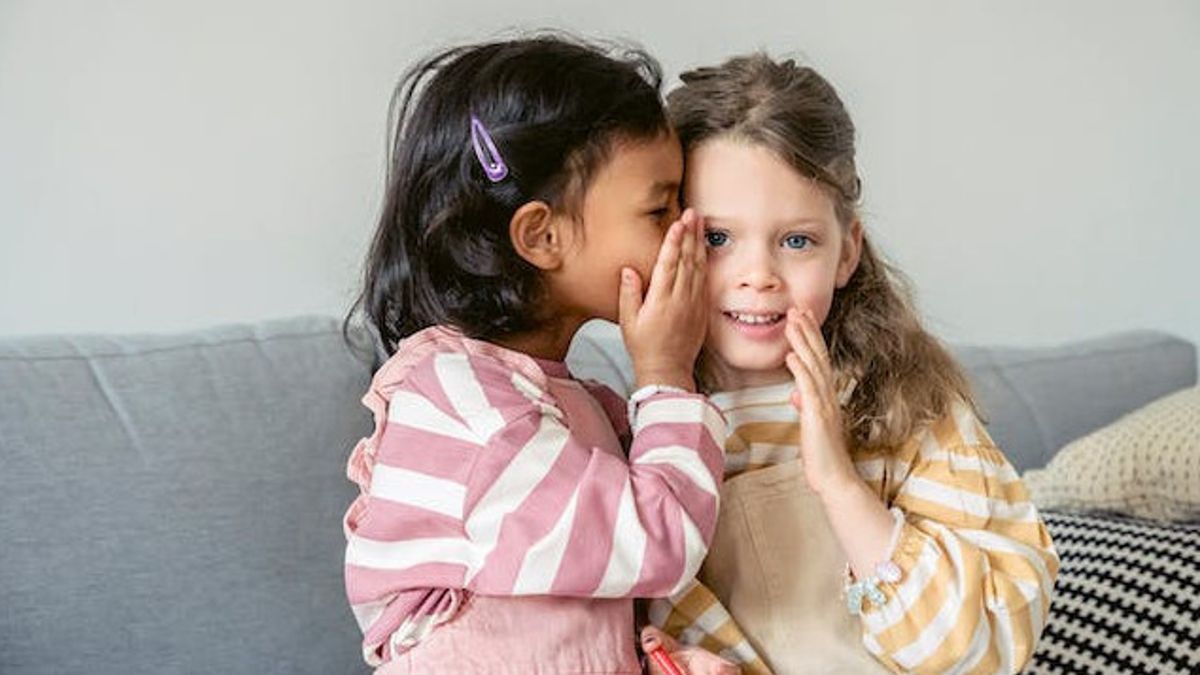JAKARTA - Of course, as parents, we will be surprised when we hear children cursing or saying dirty words. Even so, don't immediately scold him so that he doesn't like using disrespectful words.
If you want to communicate that the use of swearing is not the right choice and can hurt others, Dr. Jennie David, PhD, a psychologist in the Pediatric Psychology and Neuropsychology division at the National Children's Hospital suggests approaching children who like to curse slowly and with care.
Here are some tips that can be done when the child cursed, followed by VOI from Very Well Family, Friday, November 10.
Although difficult to do, Dr. David suggests that you remain calm and try to be neutral when your child makes words or says things that are inappropriate. Because excessive reactions can have the opposite effect of what you expect.
"Help the child reflect that he has used inappropriate words and gently reminds him that these words contain a bad meaning," said Dr. David.
Sometimes children, especially those who are young, do not understand the words they use. He also may not understand the impact of his words. Therefore, you must use this opportunity to teach him about the meaning behind the words of the deceased and how it can affect others.
Be patient when you talk to him and be willing to answer his question. Children in particular, used to only test words they hear and don't know what they're actually saying. Use this opportunity to teach what the word swearing means and why some particular words can hurt.
Sometimes it's important to find other alternatives when a child uses swearing, says Kristen Souza, LMHC, a Florida-based mental health counselor. Be creative and think about words or fun phrases that children can use other than words.
If you want to ban the use of swearing at home or in certain social situations, it is important to establish some guidelines for children. Make sure they know which words are prohibited and the reason. You can also set the consequences of using swearing words if the child is bigger. Or if the use of swearing has become a pattern.
STAND parallel to the child and then look into their eyes. Then, have a serious conversation about the choice of word usage and what the child expects to say," Souza suggested.
Children need boundaries and rules so they know what is appropriate. The key is to make sure he knows what he expects regarding his choice of choice, even though he doesn't always follow your rules.
"When the child swears, it will be very helpful if you explore gently what he wants to say," said Dr. David. Is the child trying to reveal something nuanced or something he doesn't know his words about.
"Mengeluarkan ponsel dan meminta anak memilih emoji yang menggambarkan perasaannya bisa jadi awal yang membantu," kata Dr. David.
"It's important to help your child label what he feels," added Souza. Press on him if not all behavior is good, but to be able to label that feeling needs to be done. In other words, it's okay to be angry, but swearing when you're angry is not allowed.
VOIR éGALEMENT:
As a parent, you have a big influence on your child's behavior based on the example you set him. Therefore, it is very important for you to consider your own choice of words in various situations. Try to use words that you hope will be imitated by your child.
"Exemplifying the language of respect for children is the most effective way to prevent children from swearing and educating children so they don't say dirty things," said Souza.
Strengthen the language of respect through child praise and training when he needs help expressing himself.
The English, Chinese, Japanese, Arabic, and French versions are automatically generated by the AI. So there may still be inaccuracies in translating, please always see Indonesian as our main language. (system supported by DigitalSiber.id)


















